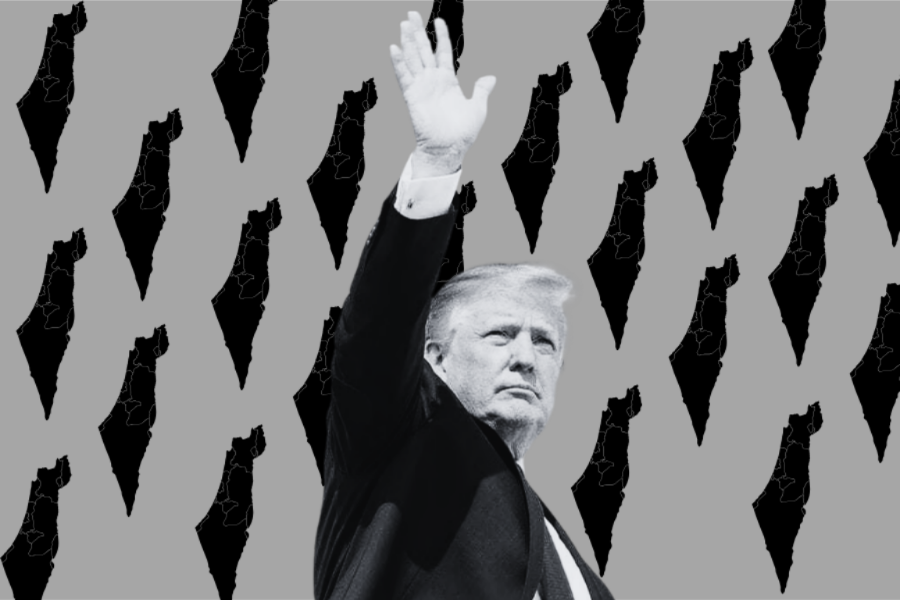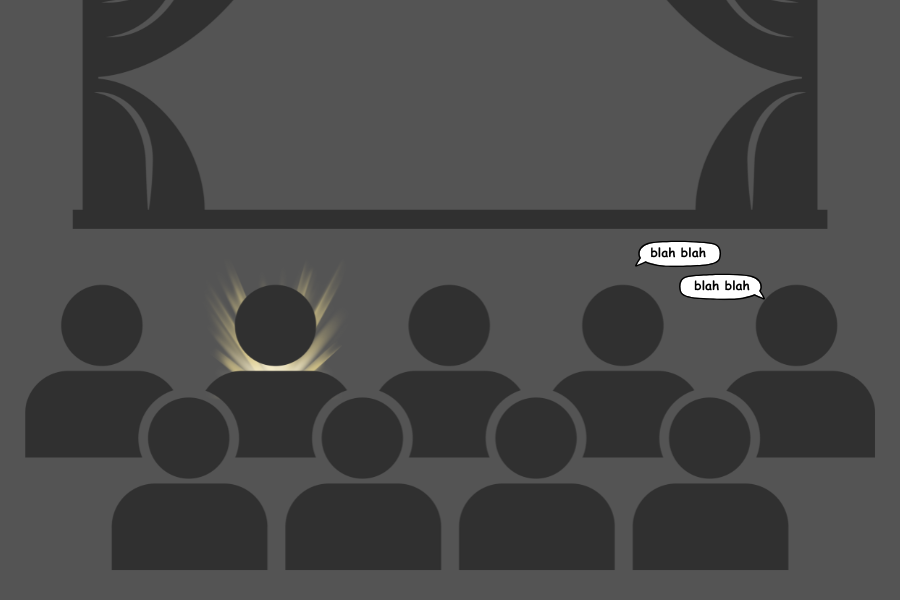Suppose you are an investor, and your investment is pooled into a hedge fund that amounts to nearly one trillion dollars. Imagine that the company you invest in cannot produce any reports on their spending, has failed every audit since 2018 and now requires you to sign a stack of security waivers in order to enter their building and restricting you from asking questions. Would you trust that company?
Now imagine if that was your government, that you live in a constitutional democratic republic, that that government has the highest military spending and with nuclear weapons “much more powerful than the bombs dropped on Hiroshima and Nagasaki in 1945.” How much trust, and capital, are you willing to place on your government? Perhaps you would come to the conclusion that we are not living in a transparent government run by the people, but instead, a privatized for-profit junta.
In the United States, journalists have no explicit constitutional right to access government spaces — but that access has long been granted as a matter of democratic tradition. It is a tradition rooted in the belief that the press, as the fourth estate, exists to safeguard the people’s right to know.
The new restrictions placed on journalists covering the White House and the Department of War (formerly the Department of Defense) challenge this unspoken pact between the government and its citizens. The new policy changes are predicted to change the idea of transparency and the American public’s access to it.
Earlier this fall, the Defense Department announced new regulations requiring press members to wear badges, follow stricter clearance rules and obtain authorization before publishing even unclassified information. The new Secretary of War, Pete Hegseth, defended these measures on social media, declaring: “The ‘press’ does not run the Pentagon — the people do.”
The irony is striking. If “the people” are to run the government, then “the people” must know what their government is doing. Restricting journalists — the intermediaries between power and the public — cuts that lifeline of accountability.
The Defense Department insists it “remains committed to transparency to promote accountability and public trust.” Yet, requiring that all information, classified or not, be “approved for public release” contradicts the very meaning of transparency. It amounts to censorship under bureaucratic disguise. History shows that when journalists are forced to peer at power through a keyhole rather than an open window, misinformation and conspiracy fill the vacuum.
When many Pentagon reporters refused to sign these restrictive policies — citing First Amendment concerns — the Defense Department announced a “next generation of the Pentagon press corps.” This “new generation” represents a notable cohort of all far-right wing publishers, which include Lindell TV, founded by Trump ally Mike Lindell, the Gateway Pundit, the Post Millennial, Human Events and the National Pulse. Also on the list are Turning Point USA’s media brand Frontlines, influencer Tim Pool’s Timcast, and a Substack newsletter called Washington Reporter.
Critics point out that several of these newly credentialed outlets have histories of spreading false or conspiratorial claims.The Missouri Independent reported that the Gateway Pundit had spread false information about the 2020 election and later “Georgia election officials immediately debunked the allegations, but the Gateway Pundit continued to make them for years in dozens of articles”
Lindell, meanwhile, was ordered to pay $2.3 million in a defamation case related to his denial of election results. Pool, a conservative influencer, was also linked to a content creation company that allegedly received nearly $10 million from Russian state media to promote pro-Moscow messages — though Pool maintains that he was “deceived” and “a victim.”
Still, this moment reveals less about those individual reporters and more about a systemic pivot in power. For the first time, government access is being redistributed not according to journalistic credibility, but to political loyalty.
What used to be a press corps with bipartisan skepticism is now becoming an echo chamber for the executive branch’s preferred voices. Even Newsmax — typically a Trump-friendly outlet — declined to sign the new Pentagon rules, calling them “unnecessary and onerous.”
The Pentagon has also used language that attacks the media and misleads the public. A spokesperson for the Pentagon has called the walk-out of the press as a “self deport.” The word “deport” has been used numerously by the administration and by the president to describe consequences for Americans protesters, speaking to the administration’s philosophy: that citizenship and participation in American freedoms are conditional for all Americans. Reporters are not leaving America, they are abandoning Trump country.
The Pentagon has also stated that solicitation of Pentagon employees is not covered by the First Amendment — which is untrue. Furthermore, this is an internal issue. Pentagon employees should be trained on answering questions, a lack of internal oversight should not be enough for reporters to be effectively banned from performing their duties.
In recent history, it has been clear that checks and balances cannot work in a system that colludes against its own people, and where all three branches are influenced by one. Journalists have always been the people’s outlet into the actions – or inaction – of the government. It was, in fact, Theodore Roosevelt who called journalists the “muckrakers” of society for their role as reporters and investigators.
The new Pentagon policies will change the culture of media and media consumption, weaken public trust, are sure to breed misinformation and lend more power to power figures of the far right. It has been unprecedented how much power has been given to friends of the president, but this does not mark the first time a president has given power to his personal friends.
President Andrew Jackson, in 1829, established what became known as the “Kitchen Cabinet” — an informal group of personal friends, political allies and loyalists who advised him outside the official cabinet.
Members included Amos Kendall, Francis Preston Blair and William B. Lewis, none of whom held official titles but wielded immense influence and were infamously rewarded in the “spoils system.”
In fact, it was the “Kitchen Cabinet” which influenced and ultimately supported Jackson during the Indian Removal Act of 1830, which was somewhat controversial to the American public at the time.
Then, of course, there was President John F. Kennedy whose brother, Robert F. Kennedy, was appointed Attorney General despite his limited legal experience. John F. Kennedy also had close friends such as David Powers and Kenny O’Donnell in his close circle and were instrumental in covering his scandals.
The 29th President, Warren Harding, became synonymous with corruption precisely because of the power he granted his friends. His so-called “Ohio Gang” — a group of poker-playing friends from his home state — were given key positions in his administration.
These men, such as Albert B. Fall, Secretary of the Interior, and Harry Daugherty, Attorney General, abused their offices for personal gain. Most may remember them for their involvement in Teapot Dome, when Fall accepted bribes for leasing federal oil reserves.
So, not without corruption, “friends of the president” have been involved in public affairs and the power of the president, beginning with Washington. However, it is unprecedented for a president to hold so much power.
First in the Supreme Court – with “consequences” for the Supreme Court not upholding legality over tariffs, then wielding striking influence in the Legislation, and pushing the limits of the executive branch. Now, the administration has power over the press.
To defend the administration’s position fairly, it is worth noting that distrust of mainstream media has reached record lows. Many Americans do believe traditional outlets have been partisan, sensational or even dishonest.
Bringing in independent or nontraditional reporters could, in theory, diversify voices and challenge elite gatekeeping. But transparency that favors allies is not transparency at all. The right to ask questions must not depend on whether the question flatters the government.
Ultimately, this moment signals a cultural shift in how information and loyalty intersect. When access becomes a reward for ideological friendship, journalism becomes performance and democracy becomes spectacle.
The White House and the Pentagon may see this as a victory against “fake news,” but the cost is real: a slow monopolization of truth by those most willing to echo power. Journalists are not enemies of the state; they are its mirror. And if the government cannot bear to see itself clearly, then it is not the reflection that needs fixing.
Knowledge is power, and as of now, the people are rendered powerless, without crutches.














